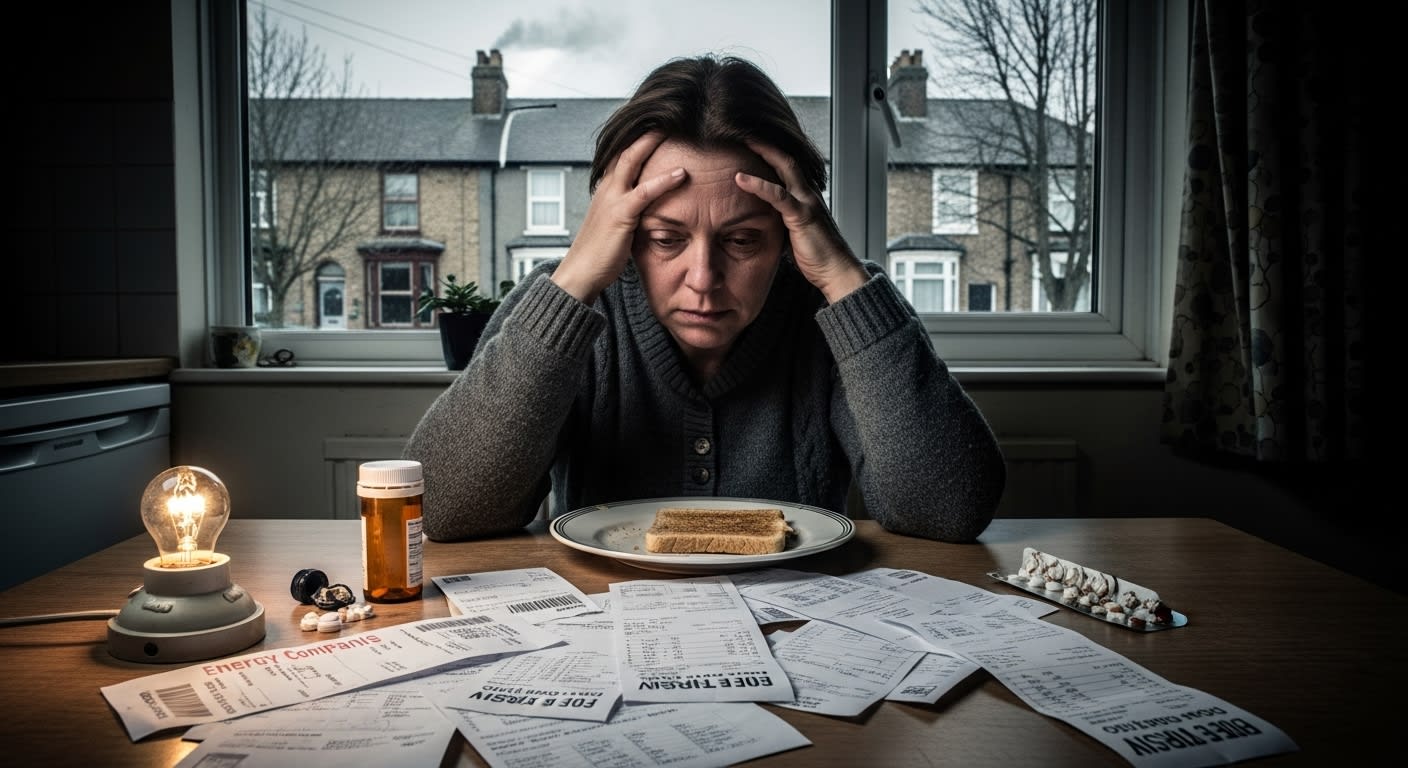
- Call: 01206 913 222
- Mail: transport@qcmhealthcare.co.uk
- Company no:
- 12140857

- MENTAL HEALTH
- Nov 13, 2025
10 Steps to Supporting Young Adults with Crisis in the UK
Supporting young adults in crisis has become increasingly important as more young people face mental health, financial, and emotional challenges. QCM Healthcare believes that no young person should have to navigate a crisis alone. Whether it’s anxiety, depression, or overwhelming life pressures, offering timely and compassionate help can make all the difference. Supporting young adults in crisis requires not only understanding but also access to the right resources. Through early intervention, active listening, and professional guidance, it’s possible to turn a moment of despair into an opportunity for recovery and growth.
Understanding the Growing Mental Health Crisis Among Young Adults
Across the UK, mental health struggles among young adults are rising at an alarming rate. Research shows that one in four people aged 16–24 experience a mental health issue each year. Factors such as social media pressure, academic stress, and the cost-of-living crisis have all contributed to this surge. However, while awareness has grown, access to support hasn’t kept pace, leaving many young people without timely help.
Addressing this growing issue begins with early recognition. By identifying distress early and offering professional intervention, families and communities can prevent situations from escalating into full-blown crises.
Phase 1 : Immediate and Urgent Crisis Response
When a young adult reaches a crisis point, quick and informed action is vital. Knowing what to do, and who to call, can save lives.
1. Contact Emergency Services in Life-Threatening Situations
If a young person’s life is in immediate danger, for instance, if they have self-harmed or are experiencing suicidal thoughts, you should call 999 or go straight to the nearest A&E department. Never delay in these situations. Urgent action can be life-saving.
2. Access 24/7 NHS Mental Health Crisis Teams
For situations that are serious but not immediately life-threatening, the NHS Crisis Resolution and Home Treatment Teams (CRHTTs) offer essential support. By calling 111 and choosing the mental health option, you can access round-the-clock care from trained professionals who can assess the situation and provide home-based treatment.
3. Use Confidential Helplines for Emotional Support
Helplines are an invaluable source of immediate, confidential support. Encourage young people to reach out to:
- Samaritans (116 123) – for anyone needing to talk, anytime.
- SHOUT (text 85258) – for free 24/7 mental health text support.
- HOPELINEUK (0800 068 4141) – for young people under 35 struggling with suicidal thoughts.
These services offer understanding, non-judgemental listening, and practical advice when emotions feel overwhelming.
RECOMMENDED:
Private vs NHS Crisis Support | Differences, Cost, Advantage and Disadvantage
How to Choose the Right Crisis Support Service in the UK| A Patient’s Guide
Top 5 ways to know When should you get a Mental Health Assessment in the UK
4. Encourage Professional Assessment and Home Treatment
Once the crisis stabilises, encourage professional assessment. NHS crisis teams can create treatment plans that include regular check-ins, medication reviews, or therapy. Managing recovery in a familiar home environment often helps young adults feel safer and more in control.
5. Include and Support Family Members and Carers
Supporting young adults in crisis in the UK doesn’t stop with the individual, it must include their loved ones too. Family members and carers play an essential role in recovery. Professionals should offer families practical tools, such as a Carer’s Assessment or local support groups, to help them cope.
Phase 2 – Long-Term Prevention and Systemic Change
While crisis intervention is vital, true change comes from prevention. It’s time to strengthen systems that stop young people from reaching crisis in the first place.
6. Increase Funding for Early Support Hubs Nationwide
Early intervention is far more effective, and cost-efficient, than late crisis care. Establishing Early Support Hubs in every community would allow young people to access professional help before their struggles worsen. These hubs should provide counselling, mentoring, and drop-in services to address mental health challenges early on.
7. Prioritise Mental Health and Wellbeing in Education
Schools and universities are essential touchpoints for early identification. Every student should have access to a Mental Health Support Team (MHST) within their institution. Embedding wellbeing education into daily life helps create supportive environments where mental health discussions are normalised.
8. Break Financial Barriers and Reduce Child Poverty
Money problems are one of the leading triggers for mental health crises. The government and local councils should ensure financial aid, extend free school meals, and maintain the Household Support Fund. Tackling financial inequality is a crucial step toward supporting young adults in crisis in the UK.
9. Protect Young Adults from Exploitation and Abuse
Sadly, many young people in crisis are also vulnerable to exploitation, including child criminal exploitation (CCE) and abuse. Stronger legal protection, community awareness, and early social work intervention are essential. Creating a statutory definition of Child Criminal Exploitation would make it easier for professionals to identify and safeguard at-risk youth.
10. Amplify Young People’s Voices in Decision-Making
To create systems that truly help, young people must be involved in shaping them. Policymakers should implement national wellbeing measurement frameworks that reflect young people’s lived experiences. Listening directly to those affected ensures that support systems remain relevant, responsive, and compassionate.
Turning Awareness into Action
Supporting young adults in crisis requires a dual approach: immediate emergency response and long-term systemic reform. Every community member, from parents and teachers to healthcare providers and government officials, has a role to play. By working together, we can prevent crises and ensure that no young person feels unseen or unsupported.
QCM Healthcare advocate for early action, stronger community networks, and accessible professional support. Our mission is to empower individuals and families to navigate challenges with confidence and compassion.
Building a Stronger Safety Net for Young Adults
Supporting young adults in crisis is not just a mental health issue, it’s a societal responsibility. While emergency services, NHS crisis teams, and helplines provide immediate relief, long-term change depends on sustained investment and compassion. Together with QCM Healthcare, you can be part of the solution.
If you know a young person in distress, reach out today. Visit QCM Healthcare to learn more about our tailored mental health support and crisis response services. Let’s build a safer, stronger, and more hopeful future, one young person at a time.
Frequently Asked Questions on Supporting Young Adults with Crisis
1. What are the main signs that a young adult is in crisis?
Common signs include withdrawal, mood swings, self-harm, sudden changes in sleep or appetite, and expressing hopelessness. If these behaviours persist, immediate professional help is necessary.
2. How can I support a young adult experiencing a mental health crisis?
Listen without judgment, stay calm, and encourage them to seek help. Offer to contact support services together, such as 111, Samaritans, or QCM Healthcare professionals.
3. What free mental health resources are available for young people in the UK?
Free resources include Samaritans (116 123), SHOUT (85258), YoungMinds, and local NHS crisis services. QCM Healthcare also provides affordable private options when NHS access is delayed.
4. How can schools better support students’ mental health?
Schools should employ counsellors, offer peer-support programmes, and embed mental wellbeing into the curriculum. Early access to Mental Health Support Teams (MHSTs) can make a big difference.
5. What is the difference between early intervention and crisis response?
Early intervention prevents issues from escalating by addressing mental health needs early, while crisis response provides immediate help during severe distress or emergency situations.
6. Are there confidential helplines for young adults in crisis?
Yes, services such as Samaritans, SHOUT, and HOPELINEUK offer confidential, 24-hour support for anyone struggling with emotional distress or suicidal thoughts.
7. How can young people access mental health support without parental involvement?
Young people over 16 can self-refer to NHS mental health services, access helplines like SHOUT, or contact private providers like QCM Healthcare directly for confidential support.



Comments (0)
No approved comments yet.